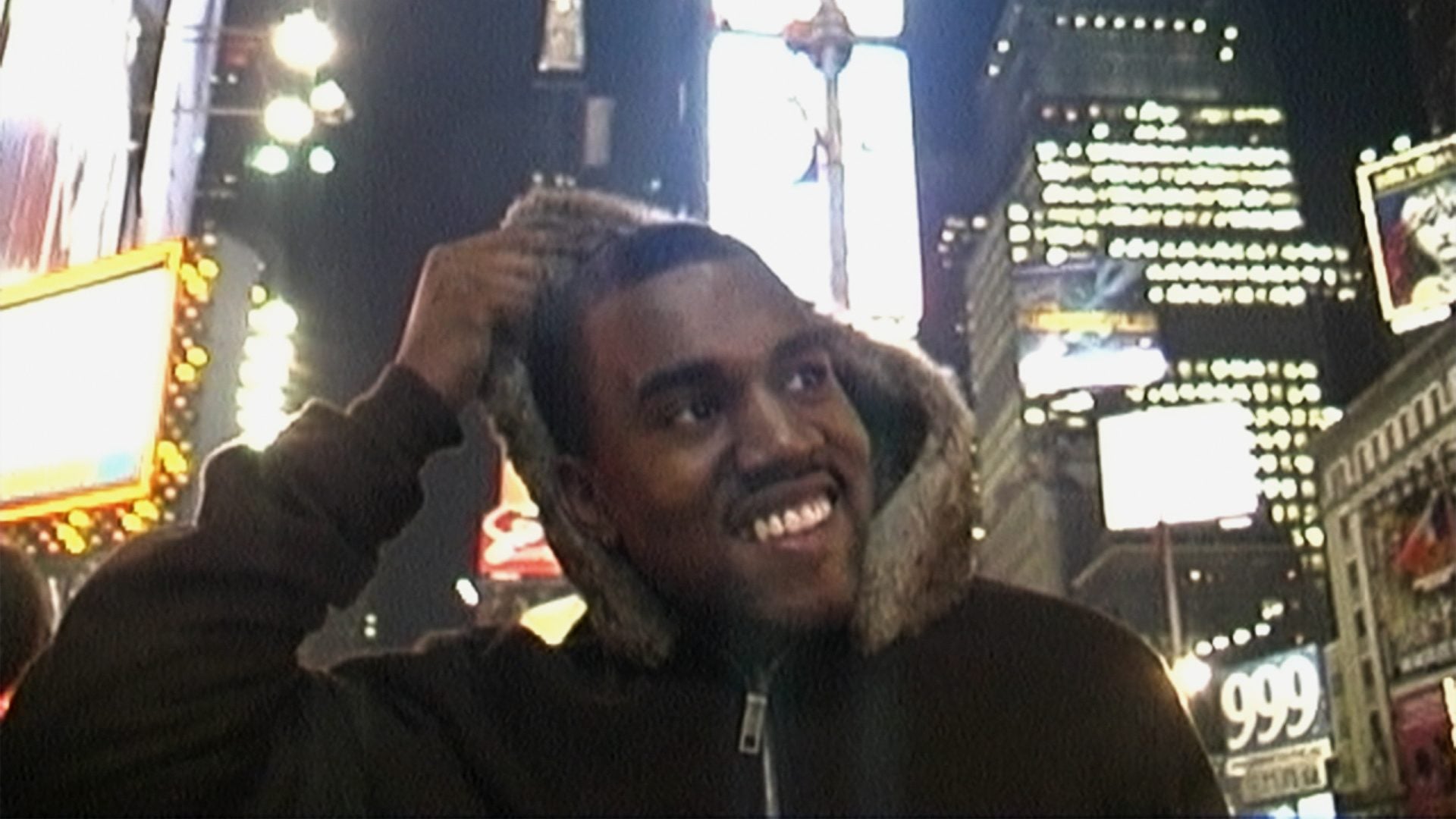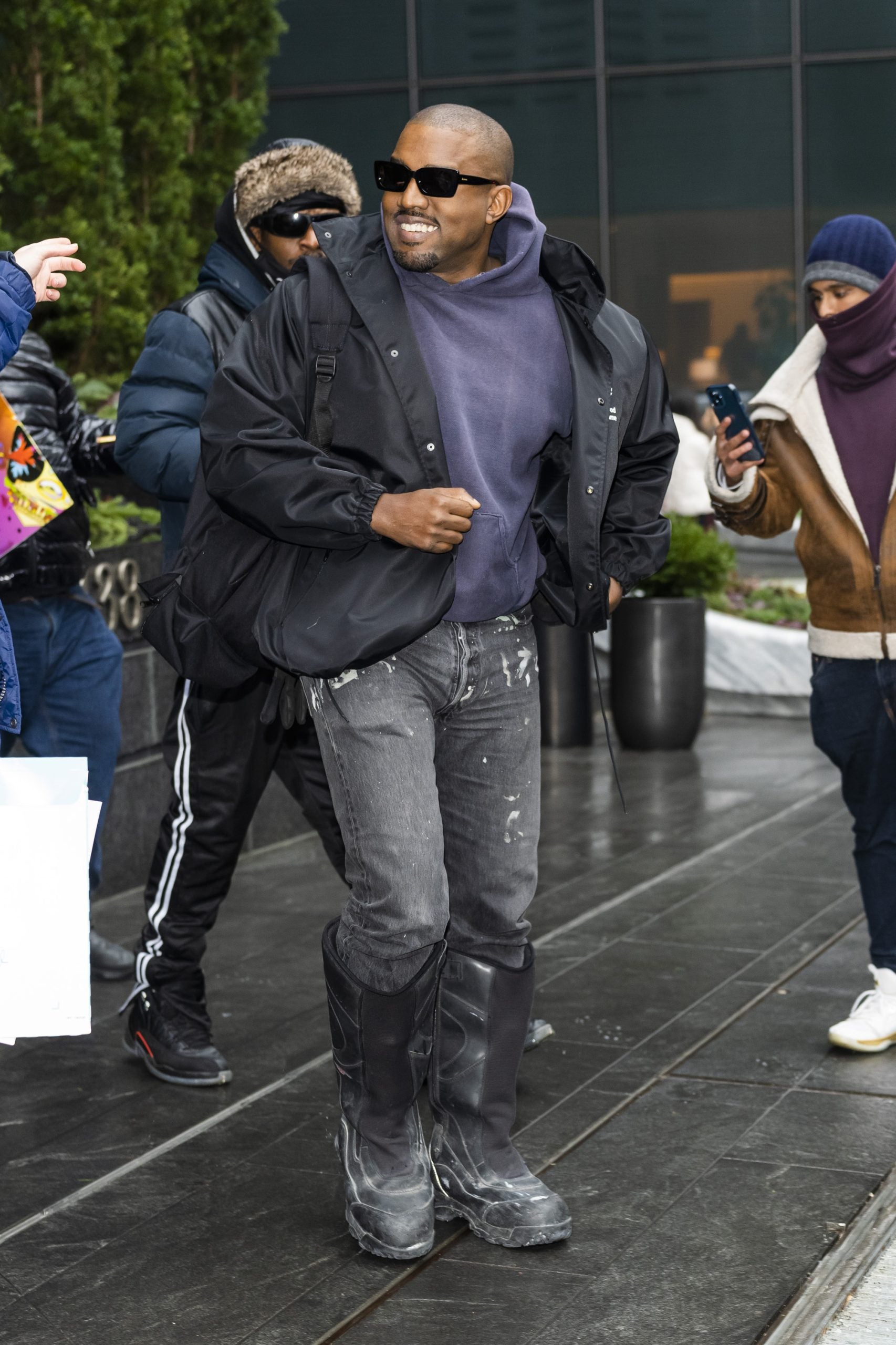
Fame isn’t normal. It doesn’t even seem humane. Yet, from the beginning of his life, Kanye West was determined to be recognized and revered for his gifts. The rapper/producer/fashion designer was determined to earn his status as a musical legend even if he ran himself into the ground to see it through.
Since his acclaimed debut album, College Dropout, some 18 years ago, so much has been said about the eccentric rapper from Chicago. Like many celebrities who reach global icon status, he’s been admired, lauded, critiqued, and condemned. Through his work, actions, and statements, Kanye has earned all of this. For a man who has become almost a caricature of how he was once perceived, it’s easy to question if we, the public —current fans and those still longing for the old Kanye — ever knew him at all.
In their engrossing three-part documentary, jeen-yuhs: A Kanye Trilogy, which spans over 20 years, directors Clarence “Coodie” Simmons and Chike Ozah introduce the audience to the man they once knew, a friend and a brother, who believed in his own brilliance before anyone else saw the hype. Even then, Kanye was determined to prove that producing tracks and making beats was only the beginning for him. The rapper took a chance on himself when there appeared to be no place for someone like him in the rap industry, particularly when the focus was either on the East or West Coast. Hip-hop artists from the midwest or the south hadn’t quite found their footing, but Kanye helped change that.
Told in three acts titled “Vision,” “Purpose,” and “Awakening,” jeen-yuhs opens amid Kanye’s ill-fated presidential run in 2020 and quickly turns back the tides to Kanye and Coodie’s first introduction in 1998. Even then, as a 21-year-old who’d found his way into Jermaine Dupri’s birthday party, The Life of Pablo rapper had the will to grind and sustain himself in an industry that quickly forgets. As Coodie pans the room with his camera in that first meeting, Kanye gets lost among members of Mase’s Harlem World and others in the industry whose names escape us today.
“Vision” focuses on Kanye’s career in the early 2000s as he made beats for other artists like Jay Z to sustain himself and his dreams. For years, he’d been doing the groundwork to make a name for himself. In 2002, after years of self-promotion, pushing his way into the Roc Nation offices, moving to New York, and having long talks with his mother, he finally got the record deal that he’d earned.
Though Kanye’s hunger and drive had finally paid off, a car accident just two months after signing his deal nearly cost him his life. Not knowing what to make of a rapper with a broken jaw, Roc Nation pushed him into the background once again. “Purpose,” the strongest segment in the documentary, focuses on the visionary musician taking back control of his destiny and pouring his soul into College Dropout, so Roc Nation had no choice but to give him a release date.

Like “Vision,” the never-before-seen footage in “Purpose” is a minefield that will undoubtedly keep diehard Kanye fans captivated. Unlike “Vision,” which felt belabored in some moments, “Purpose” moves at a better pace. The most enticing gems are Kanye’s recording sessions with Jamie Foxx while creating “Slow Jamz” or watching Pharrell Williams listen to “Through the Wire” for the first time.
With the world at his feet, Kanye was finally receiving the recognition he desired. His mother, Donda West was constantly at his side as a voice of critical thought and encouragement. As she tells him at one point in the trilogy, “When a giant looks into the mirror, he sees nothing.”
In the first two sections of the trilogy, Kanye seems unmoved by adversity. Instead, the My Beautiful Dark Twisted Fantasy rapper uses the naysayers and even his accident as fuel to push forward. Yet, as we all know, there is only so much trauma one person can take until they begin splintering under pressure.
“Awakening,” the third act in jeen-yuhs, introduces the viewer to a very different Kanye, then the man seen in the early sections, especially following the death of his mother. Like the rest of the world, Coodie watch’s Kanye’s grief and outbursts from afar as the rapper distanced himself from the documentary and his friend. In a compelling narrative style, Coodie chose to document his life in tangent to Kanye’s, particularly from 2007 to 2014 when they were not as close. The filmmaker shows the growth and change he’d experienced becoming a father himself, grieving the loss of his father, and focusing on other projects outside of Kanye’s sphere. Though it seems strange at first, it’s a particularly striking parallel to watch one man deal with significant highs and lows in life without having immense access or being under a microscope.
Despite the distance, Coodie’s concern for his friend, as Kanye’s behavior became increasingly erratic, is a constant. What stands out in jeen-yuhs is that Coodie never tries to diagnose the “Jesus Walks” rapper or even judge him. Instead, even as their interactions become more sporadic following the death of Donda West, he tries to approach Kanye with the gentleness of a lifelong friend. The filmmaker becomes a quieter presence behind the camera, happy to check in on the rapper’s well-being but reserving any personal judgments or questions he might have off-camera. As Coodie says at one point after not having interacted with the Late Registration star after an extended period, “I knew Kanye, but I had never met Yeezy.” While allowing Kanye to retain his humanity, jeen-yuhs doesn’t ignore the rapper’s public experiences with mental health issues. However, it is Kanye himself who speaks openly about his bipolar diagnosis and addiction struggles. Moreover, Coodie and Chike are very careful to never suggest the late Ms. West or any other woman in Kanye’s life might be the catalyst to any of his alarming behaviors.
With a near five-hour run time, there are bits of jeen-yuhs that are redundant and long-winded. Moreover, during “Awakening,” most of the footage is pulled from media stories, as Coodie and Chike’s access to Kanye had dwindled. However, where the trilogy remains most solid is right in the middle, giving viewers a bird’s eye view of the soaring moments and the perils of fame.
In some regards, jeen-yus is a time capsule of the life and career of a man who has done so much — for better or for worse. However, at the core of this Kanye West trilogy is a friendship, one filled with vulnerable moments, laughs, outbursts, and of course, some brilliant sparks of musical genius.
jeen-yuhs: A Kanye Trilogy premiered at Sundance Festival Jan. 23, 2022. The three-week event will begin streaming on Netflix Feb. 16, 2022.